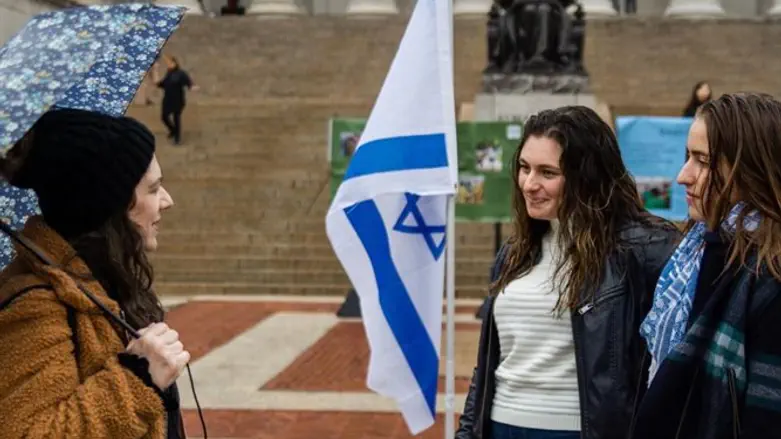
In New York, the US Area Elections Committee (AEC) will meet this week to discuss the new controversial pricing policy of the American Zionist Movement (AZM).
Several months ago, the AEC voted to move to a flat voting fee for all American voters in the upcoming World Zionist Congress (WZC) elections, regardless of age. In previous elections, the voting fee was $10 but voters age 18-30 paid a discounted fee of $5, which allowed more young Jews the ability to participate in the elections.
The fee hike for students is being challenged by VISION, a combined slate of campus activists and community organizers from LAVI , Doreinu, and a number of other movements fighting to empower young voices within the Jewish political establishment and to force what they consider to be crucial conversations about Jewish liberation in the 21st century.
The slate called itself the Alliance for New Zionist Vision in the previous congress, where they succeeded in narrowly passing a bill (by 51%) declaring the Jewish people indigenous to the Land of Israel.
Danit Felber of LAVI and Michael Shepsis of Doreinu submitted a formal request to the AEC and AZM to return to a pricing policy that would offer younger voters a discount and encourage them to participate.
“The function of the World Zionist Congress is to shape and protect the future of the State of Israel and Diaspora Jewish communities,” said Felber. “The next generation must have a strong voice in deciding who shapes that future, as they will be the ones who have to live with the decisions made today for decades to come.”
This is the first time in many elections for the WZC that there has not been a discounted registration fee for students and, if not changed, could send a message to young Jews that their participation isn’t valued. The VISION slate questions the wisdom of this change at a time when many young Diaspora Jews are feeling alienated from Israel and the organized Jewish community. Those who stay must be made to feel welcome and included.
Still, the VISION activists believe the fee hike for student voters was made in error and hope to work with the AZM in fixing the error.
“We don’t believe the AZM is intentionally trying to keep young voices out of the World Zionist Congress,” said VISION candidate Samantha Muskat of American University.
“In fact, they often claim to want more youth participation. They know that the decisions being made at the WZO impact the next generation and they support VISION’s efforts to fill the congress with young delegates. We assume that the price hike for student voters wasn’t intentional but really just an accident that occurred in the midst of attempts to lower fees for the older generation. But now that we’ve identified the mistake, we expect the AZM to work with us in setting things right.”
While the committee lowered the cost of registration by 25% for the older generation from $10 to $7.50, it raised the cost for students by 50% from $5 to $7.50. Taking into consideration the difference between what $2.50 means to a student versus to those already well-established in the workforce, the VISION alliance feels this change sends a message that the AZM under-prioritizes the participation of students.
At an AZM meeting on November 4, Mercaz USA (the Conservative movement), along with Ameinu (Labor) and Partners for a Progressive Israel, attempted to prevent a discussion on the issue from taking place but failed to garner the necessary two-thirds majority to kill the issue. The VISION activists have meanwhile received assurances from three other factions running in the AZM elections that they would vote in favor of their initiative to return to a more fair pricing policy for students.
“Mizrachi, ARZA (the Reform movement), and ZOA/Likud all understand the importance of keeping the younger generation involved in Israel-related issues and have assured us that if we can successfully bring the issue to a vote, they’d support our efforts to return to a discounted price for younger voters,” said Rudy Rochman of VISION, adding that “[w]ith the support of these factions we expect to be successful.”
Felber added that “[t]hese elections are the perfect opportunity to engage and re-engage students and young professionals who have put their involvement in Israel on the back burner. It would be a shame for Israel and the Jewish people if the AEC prioritized a few extra dollars over those who could potentially be the next generation’s Jewish leaders.”
